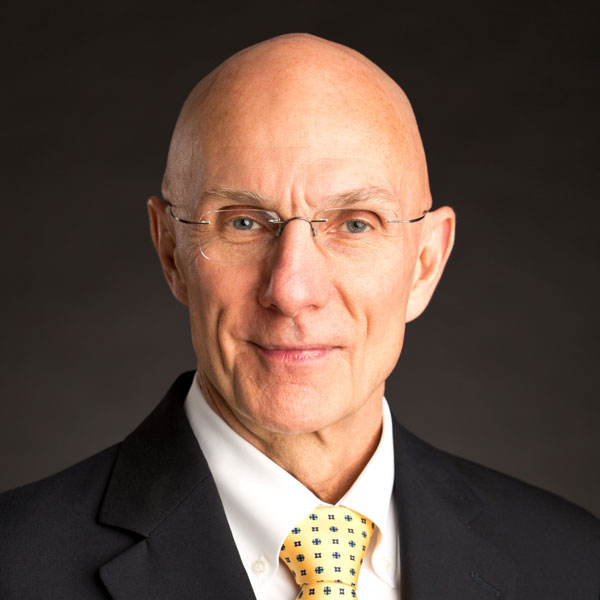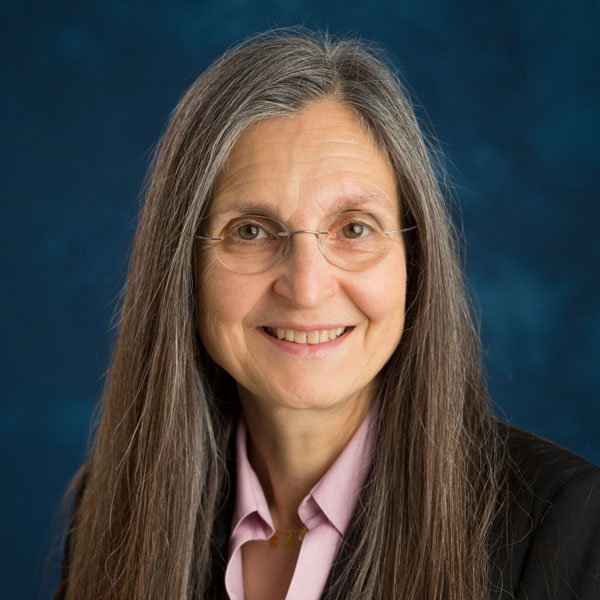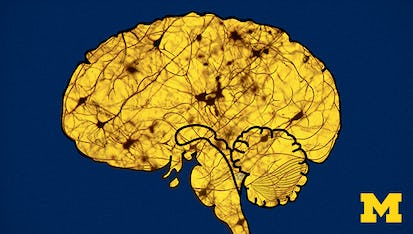- Level Foundation
- Duration 21 hours
- Course by University of Michigan
-
Offered by

About
The objective of this course is to give students the most up-to-date information on the biological, personal, and societal relevance of sleep. Personal relevance is emphasized by the fact that the single best predictor of daytime performance is the quality of the previous night's sleep. The brain actively generates sleep, and the first section of the course is an overview of the neurobiological basis of sleep control. The course provides cellular-level understanding of how sleep deprivation, jet lag, and substances such as alcohol, ,caffeine, and nicotine alter sleep and wakefulness. The second section of the course covers sleep-dependent changes in physiology and sleep disorders medicine. Particular emphasis will be placed on disorders of excessive sleepiness, insomnia, and sleep-dependent changes in autonomic control. Chronic sleep deprivation impairs immune function and may promote obesity. Deaths due to all causes are most frequent between 4:00 and 6:00 a.m., and this second section of the class highlights the relevance of sleep for preventive medicine. The societal relevance of sleep will be considered in the final section of the class. In an increasingly complex and technologically oriented society, operator-error by one individual can have a disastrous negative impact on public health and safety. Fatigue-related performance decrements are known to have contributed as causal factors to nuclear power plant failures, transportation disasters, and medical errors.Modules
Lesson 01 - Course Overview (Standard Track)
1
Videos
- 01.01 - Course Overview - Ralph Lydic, Ph.D.
3
Readings
- Getting Started
- Syllabus
- Help Us Learn More About You!
Lesson 02 - Neurobiology: Neurobiology of Sleep and Wakefulness (Part One) - Helen Baghdoyan, Ph.D.
1
Assignment
- Did you Complete Lesson 2?
5
Videos
- 02.01 - Learning Points
- 02.02 - Defining Behavioral States
- 02.03 - Historical Overview: Brainstem & Forebrain
- 02.04 - Wake & REM: Monoamines
- 02.05 - Wake & REM: Acetylcholine
1
Readings
- Lesson 2 Orientation
Lesson 03 - Neurobiology of Sleep and Wakefulness (Part Two) - Helen Baghdoyan, Ph.D.
1
Assignment
- Did you complete Lesson 03?
3
Videos
- 02.06 - Wake & REM: GABA
- 02.07: Wake & REM: Orexin
- 02.08: NREM: GABA
Lesson 04 - Neurobiology of Sleep and Wakefulness (Part Three) - Helen Baghdoyan, Ph.D.
1
Assignment
- Unit 02 Honors Track Quiz - Neurobiology of Sleep and Wakefulness
2
Videos
- 02.09: NREM: Adenosine
- 02:10: Summary
Lesson 05 - Neurobiology: Mathematical Modeling of Sleep-Wake Regulation (Part One) - Victoria Booth, Ph.D.
1
Assignment
- Did you Complete Lesson 5?
5
Videos
- 03.01 - Introduction to Mathematical Modeling of Sleep-Wake Regulation
- 03.02 - Two Process Model
- 03.03 - Sleep-Wake Flip-Flop Model
- 03.04 - Reciprocal Interaction Model
- 03.05 - REM Sleep Flip-Flop Model
1
Readings
- Unit 03 Orientation
Lesson 06 - Neurobiology: Mathematical Modeling of Sleep-Wake Regulation (Part Two) - Victoria Booth, Ph.D.
1
Assignment
- Unit 03 Quiz - Mathematical Modeling of Sleep-Wake Regulation
5
Videos
- 03.06 - Features for an Ideal Model of Sleep-Wake Regulation
- 03.07 - Introduction to Mechanistic Models of Sleep-Wake Regulation
- 03.08 - Diniz Benh & Booth Model - Part I
- 03.09 - Diniz Benh & Booth Model - Part II
- 03.10 - Conclusion
Lesson 07 - Neurobiology: Molecular Biology and Genetics of Sleep (Part One) - Chiara Cirelli, Ph.D. (Honors Track)
1
Assignment
- Did you complete Lesson 7?
3
Videos
- 04.01 - Expression of mRNA Varies During Sleep and Wakefulness
- 04.02 - Wake Genes that are Associated with Energy Metabolism
- 04.03 - Synaptic Plasticity is Genetically Modulated
Lesson 08 - Neurobiology: Molecular Biology and Genetics of Sleep (Part Two) - Chiara Cirelli, Ph.D. (Honors Track)
1
Assignment
- Unit 04 Quiz - Molecular Biology and Genetics of Sleep
3
Videos
- 04.04 - Brain Glial Cells Influence States of Sleep and Wakefulness
- 04.05 - Genetic Modulation of Human Sleep Phenotypes
- 04.06 - Conclusion
Lesson 09 - Medicine: Overview of Sleep Medicine (Part One) - Ronald Chervin, M.D. (Standard Track)
4
Videos
- 05.01 - Introduction - Overview of Sleep Medicine
- 05.02 - Clinical Approach to Sleep Disorders
- 05.03 - Polysomnography
- 05.04 - Classification of Sleep Disorders
1
Readings
- Unit 05 Orientation
Lesson 10 - Medicine: Overview of Sleep Medicine (Part Two) - Ronald Chervin, M.D. (Standard Track)
1
Assignment
- Unit 05 Quiz- Overview of Sleep Medicine
3
Videos
- 05.05 - Obstructive Sleep Apnea
- 05.06 - Testing for Obstructive Sleep Apnea
- 05.07 - Treatment for Obstructive Sleep Apnea, and Concluding Thoughts
Lesson 11 - Medicine: Disordered Sleep and Breathing Alters Cardiovascular Health - Helena Schotland, M.D. (Standard Track)
1
Assignment
- Unit 06 Quiz - Disordered Sleep and Breathing Alters Cardiovascular Health
3
Videos
- 06.01- Impact of Disordered Sleep and Breathing on Cardiovascular Health (Part 1)
- 06.02 - Impact of Disordered Sleep and Breathing on Cardiovascular Health (Part 2)
- 06.03 - Outcomes of CPAP Therapy and Conclusions
1
Readings
- Unit 06 Orientation
Lesson 12 - Medicine: Sleep and Psychiatric Disorders (Part One) - Eric Nofzinger, M.D. (Standard Track)
3
Videos
- 07.01 - Introduction - Sleep and Psychiatric Disorders
- 07.02 - What Goes to Sleep?
- 07.03 - Sleep Alterations Associated with Specific Psychiatric Disorders
1
Readings
- Unit 07 Orientation
Lesson 13 - Medicine: Sleep and Psychiatric Disorders (Part Two) - Eric Nofzinger, M.D. (Standard Track)
1
Assignment
- Unit 07 Quiz - Sleep and Psychiatric Disorders
5
Videos
- 07.04 - Bipolar Disorder and Schizophrenia
- 07.05 - Anxiety Disorders
- 07.06 - Substance Use Disorders
- 07.07 - Insomnia
- 07.08 - Interventions for Insomnia
Lesson 14 - Medicine: Insomnia: Causes and Consequences - Christopher Drake, Ph.D. (Standard Track)
1
Assignment
- Unit 08 Quiz - Insomnia: Causes and Consequences
4
Videos
- 08.01 - Insomnia: Causes and Consequences
- 08.02 - Consequences of Insomnia
- 08.03 - Causes of Insomnia
- 08.04 - Insomnia and its Relation to Hyperarousal
1
Readings
- Unit 08 Orientation
Lesson 15 - Medicine: Treatments for Insomnia - J. Todd Arendt, Ph.D. (Standard Track)
1
Assignment
- Unit 09 Quiz - Treatments for Insomnia
9
Videos
- 09.01 - Behavioral and Pharmacological Treatments for Insomnia
- 09.02 - Treatment Options for Insomnia
- 09.03 - BzRA Hypnotics
- 09.04 - Abuse Liability of Hypnotic Agents
- 09.05 - Pharmacological Treatments for Insomnia
- 09.06 - Nonpharmacological Treatments for Insomnia
- 09.07 - How CBT-I Works
- 09.08 - Pharmacological Treatments for Insomnia Part III
- 09.09 - Summary
Lesson 16 - Medicine: Sleep and Anesthesia - George Mashour, M.D. (Standard Track)
1
Assignment
- Unit 10 Quiz - Sleep and Anesthesia
4
Videos
- Unit 10 Overview
- 10.01 - Sleep and Anesthesia: Shared Phenotype and Shared Mechanism?
- 10.02 - Sleep and Anesthesia: Shared Function?
- 10.03 - Summary
Lesson 17 - Society: Circadian Rhythms, Sleep, and Health (Part One) - Theresa Lee, Ph.D. (Standard Track)
2
Videos
- 11.01 - Why Sleep is Important
- 11.02 - Sleep Occurs as a Circadian Rhythm
1
Readings
- Unit 11 Orientation
Lesson 18 - Unit 11 - Society: Circadian Rhythms, Sleep, and Health (Part Two) - Theresa Lee, Ph.D. (Standard Track)
1
Assignment
- Unit 11 Quiz - Circadian Rhythms, Sleep, and Health
3
Videos
- 11.03 - Changes in Sleep Rhythms Across the Lifespan (Part 1)
- 11.04 - Changes in Sleep Rhythms Across the Lifespan (Part 2)
- 11.05 - Circadian Rhythms and Sleep Hygiene
Lesson 19 - Society: Daytime Sleepiness and Sleep Need - Thomas Roth, Ph.D. (Standard Track)
1
Assignment
- Unit 12 Quiz - Daytime Sleepiness and Sleep Need
4
Videos
- 12.01 - Brain Basis of Daytime Sleepiness
- 12.02 - How is Sleepiness Measured?
- 12.03 - How Many People in our Society are Sleepy?
- 12.04 - What are the Causes of Daytime Sleepiness?
4
Readings
- Unit 12 Orientation
- Farewell for Now
- Post-Course Survey
- Keep Learning with Michigan Online!
Auto Summary
Discover the fascinating world of sleep with the "Sleep: Neurobiology, Medicine, and Society" course, designed for those eager to understand the comprehensive significance of sleep from a biological, medical, and societal perspective. This course delves into the neurobiological mechanisms that drive sleep, exploring how factors like sleep deprivation, jet lag, and common substances impact sleep and alertness. Led by an expert instructor, the program covers critical topics such as sleep disorders, including insomnia and excessive sleepiness, and examines how chronic sleep deprivation can affect immune function and contribute to conditions like obesity. The course also highlights the critical times when deaths from all causes peak, underscoring the importance of sleep in preventive medicine. In the broader societal context, the curriculum addresses how sleep-related fatigue can lead to severe consequences, such as nuclear plant failures, transportation mishaps, and medical errors, emphasizing the importance of sleep for public health and safety. Spanning approximately 1260 minutes, this foundational course offers flexible subscription options through Coursera, including Starter and Professional plans. Ideal for those in the science and engineering domains, this course is a valuable resource for anyone looking to deepen their understanding of sleep's critical role in our lives.

Ralph Lydic, Ph.D.

Helen Baghdoyan, Ph.D.


